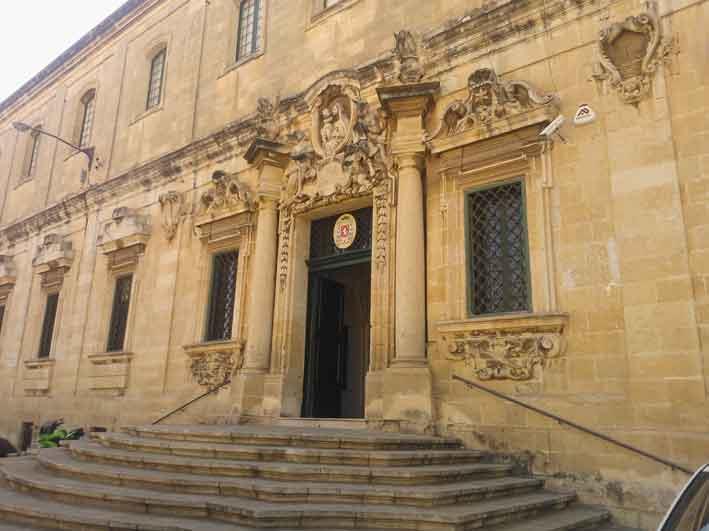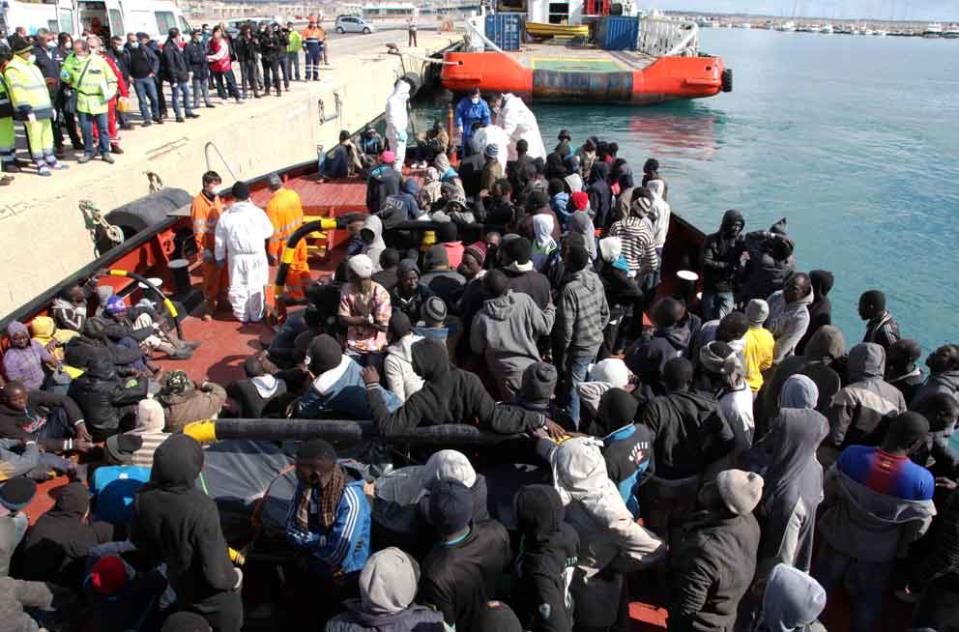Adrian Buckle, the Artistic Director and Producer at Unifaun Theatre group who attempted to stage ‘Stitching’ back in 2009, believes the censorship board responsible “is toothless”.
Adrian explained that the Board in charge of censuring theatre productions is now all bark and no bite. “Before 2012 we had to present a script to the censorship board and they would either classify it or ban it. Since 2012, this stopped happening. We have our own script and we decide what classification to give it. This goes on the strength of the producer’s opinion. The censorship board never came into it since 2012. Legislation says that if someone objects to the classification given, that’s when the Board comes in, however if I say it should be 16 + and they disagree, then it will be kept 16+ but a note will be added stating that ‘in the opinion of the censorship board this play should be classified at 18+’. But this has never happened as they are toothless. I told them we would bring them down and we have”.

Adrian stressed that censorship laws were removed in 2012 by Minister Mario de Marco, and what is being proposed “is the removal of blasphemy and obscenity laws”.
He was involved in consultation during the 2012 censorship law repeal, and had a meeting with Judge Bonello and put forward his proposals.

He has spoken with Justice Minister Owen Bonnici and gave him his opinion. He told him that theatre should not be subject to blasphemy and obscenity laws. “Art is something different where we need to explore and push the envelope in any art, and Dr Bonnici agreed with us”.
The producer believes that artists in Malta will have the same liberties as those in Britain should the laws pass. “We need it to go through… it has to happen and it is important that it does”.
Adrian planned on staging ‘Stitching’ back in 2009, however “It had troubled someone and was banned”.

Church was underhanded during the ‘Stitching’ case
“We wanted to stage Stitching as it was a fantastic play. It’s about a couple who lose a child. The man can deal with it while the woman cannot. The child was lost during an argument with her partner and she descends into the deepest hell of her psyche. She tries to become a prostitute, engages in illicit affairs, tries to convince her partner to kidnap and kill children and also stitches her vagina as if trying to recover physical possession of her child”. He explained that it shocked people and some didn’t want it to be shown. “The laws at that time were in their favour. We want to show the play however currently it is undergoing trial in Europe and before that concludes we cannot stage it”.
Adrian states that the Church was very underhanded during the Stitching case. “We had a witness, Father Joe Abela, who testified in our favour. He was, at the time, head of the Film Classification Board of the Church. Because he testified in our favour the Church removed him and publicly said that his words don’t reflect the position of the Church. This was don’t to undermine his testimony, and it worked. It was very underhanded and in my opinion it was criminal. No-one can be removed from his position because of the testimony he gives, and the Church did just that”.

I don’t stage plays to shock people, but to create debate
“I don’t stage plays to shock people, I’m interested in creating a debate. Whether they are shocked or not does not interest me. I could have shocked everyone with the production of ‘Blasted’, where I could have marketed it as the aggressive piece it was. It was actually ‘Blasted’ that resulted in the Stitching situation. It had offended so many people that they wanted to stop the next play. My suspicion is that ‘Blasted’ was the problem, not ‘Stitching’. I wanted to create an honest debate”.
So what would these laws mean for the theatre industry?
“If I stage a play… no one would be able to drag me to court because they believe the play is obscene or blasphemous. Today, I am free to put on whatever play I want, however if someone gets offended he can drag me to court. This removes this capability and gives more liberty to the artist. We will be able to explore darker aspects of life and can explore things that we were afraid to explore so far, such as Stitching, which explored the darkest side of the human psyche”.
The removal of censorship laws relating to theatre in 2012 and the possible removal of the upcoming laws don’t affect him as he has always done what he felt he should have done.
“I have fought my battles. Stitching was not the only episode where I had disagreements with the censorship board. I had problems with ‘Paul’, ‘Some Explicit Polaroids’, ‘Blasted’, it’s a long list. I do the work I believe I should be doing however I am probably freer now to stage some plays, however the laws never affected my choices”.

Adrian has plays planned up until 2018, he said. Coming October and November, he plans on staging a play titled “Attempts on her life” by Martin Crimp. “It is a modern classic and has been staged all over Europe. It is a play without characters and without a plot. It will leave audiences confused but it’s a very strong play, very poetic and deals with prostitution, immigrants, war and racism”.
In February, the theatre group will stage a play called ‘Lampedusa’ that deals with immigration in the Mediterranean. “It features a fisherman from Lampedusa, who is about of a job and is now fishing for corpses instead of fish. He tells tales of the dead he finds at sea, befriends an immigrant and tries to help his wife cross the seas. It’s a touching play on a topic very real to Malta”.
“We are one of the few European countries without an extreme right party in Parliament. This could be a blessing and as far as I see both the PL and PN are in favour of helping immigrants and this is positive. What ‘Lampedusa’ does, is show the suffering these people go through when crossing the Mediterranean. It also shows that we can live together… there’s hope in it and that’s what I like in plays”.
Come April, the group will stage a world premiere of an Edward Bond play, who he described as the “greatest living playwright”, called “The price of One”. It will be staged at the Manoel Theatre and tackles humanity, or what Edward Bond calls ‘humanness’ in today’s consumeristic society… a society led by the market”.
These are the plays he has planned for the coming season.

No line needed for moral values
Adrian doesn’t believe there needs to be a line drawn for moral values. “I think that everyone should act according to their own conscious. We don’t need a nanny state. I’m an educator, where I create an atmosphere for children where they learn to use their mind and learn to determine what is right and wrong. I don’t dictate to them what is good and bad, they have to come up with the answers, they have to come up with them. This is what I educate them to do, this is what growing up means”.
Turning to pornographic content, he said he would not put on a pornographic play, “however if someone wants to damage their reputation by staging such a play then its his reputation, and if people want to watch it who am I to stop them.”
“I really don’t care how the public will take the opening of shops. If porn shops open, good luck to them, I’m not interested, but its up to them. If someone believes he can have a business in porn, good luck to him”.
Asked whether what interests the public comes into play when deciding whether to stage a show, he said that he starts what he wants to do. “Obviously I have to factor in the public, however this comes late in the process. I’m putting my money in, its my work, so I do what I want to do”.
What about in cases where a certain play would seriously challenge the values of the Maltese public. Do you believe the public is ready for this?
“If the public is not ready then they wouldn’t go and watch it. However I think it is. The play ‘Jien inhob inti thobb’ which challenged public values. It was a good exercise and people went to watch it. They really sold out. I think it is ready. There are obviously some prudes who want to dictate however that is not how democracy works”.

A play about abortion
“I’ve been producing plays since 2005 and I’ve challenged basically everything. The only thing I haven’t done is an abortion play, which I intend to do sometime soon - however so far I haven’t found the right play. The public has always responded, they’ve always come. Obviously it’s a select audience not the audience at large. My company has a select audience who are very loyal and come to almost every show I hold and know what to expect. When we staged ‘Some explicit polaroid’s’ they knew they would be exposed to the gay agenda, when we held “the seduction of almighty god’ they knew we would tackle religion, and not favourably”.
On the idea of an abortion play, he said “all hell will break loose. I will still stage it, not because I promote abortion mind you, but because I believe there is need of a debate”.
The direction of theatre in Malta over the next ten years depends on where the producers will go, he said. “I can only speak for myself and I want to continue holding challenging plays that speak truths about society and that will start debate. Other companies want to entertain the public and stage plays in Maltese. Everyone has their niche”.
“When I hear someone say ‘I don’t go to the theatre but I should, that offends me. You don’t say ‘I don’t go to the cinema but I should’, you don’t say it, so why should someone go to the theatre? You don’t go to the theatre to learn, but to be entertained. There’s different types of entertainment, comedy and tragedy. Democracy was invented by the Greeks, and they later invented tragedy. They used tragedy to explain democracy. That’s what happens in theatre. You understand democracy, and democracy is the most important thing we have”.